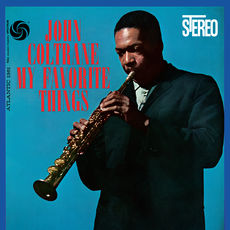Whenever previously unreleased material by John Coltrane is discovered, it’s an event. On Evenings at the Village Gate, Coltrane and his superb band are joined by Eric Dolphy, which makes for essential listening. The album was recorded at the famous Greenwich Village club in 1961 on a single microphone; producer and sound engineer Rich Alderson was checking out the sound system and testing a new mic, not intentionally recording an LP. The instrumental balance on the unearthed tapes isn’t flawless, but that’s a quibble: the overall sound and room tone are good, and the music stuns.
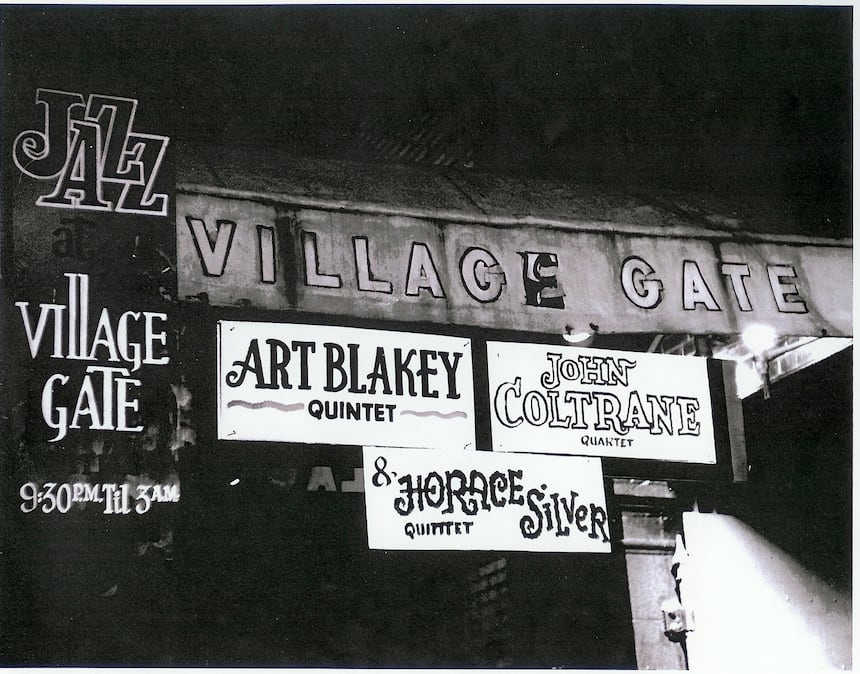
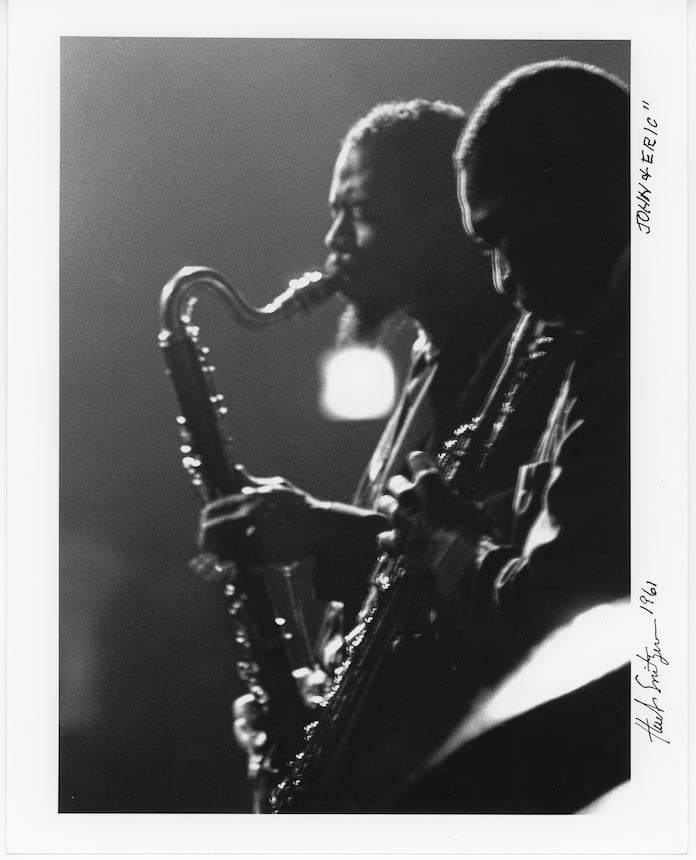
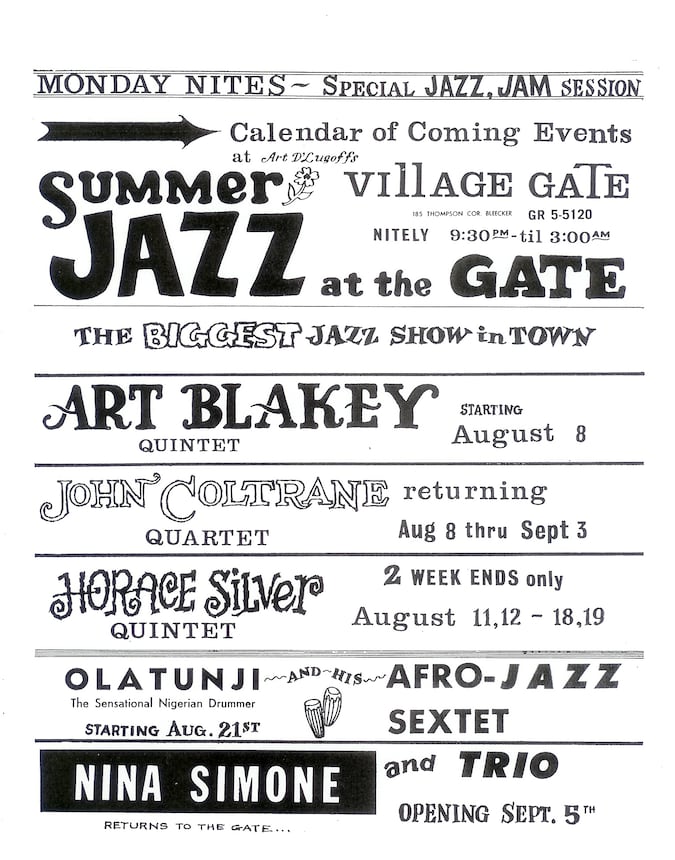
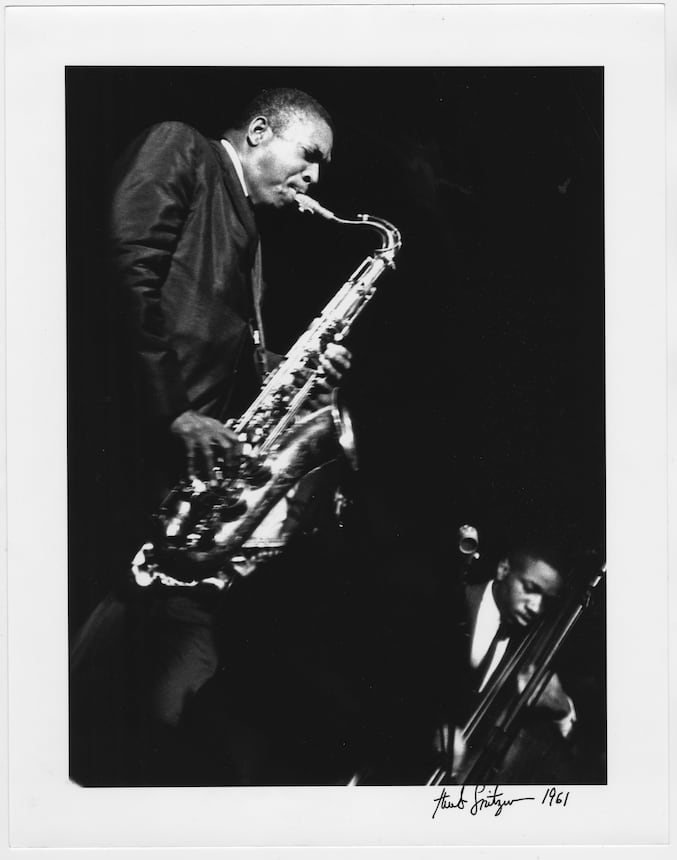
Coltrane’s work in the early ‘60s was changing: he was absorbing Indian and African influences; at times, both simplifying (in terms of the changes, or harmonic structures) and expanding (playing long exploratory solos); and imbuing the sounds with a deepening spiritual feeling. Dolphy’s love of birdsong is apparent during an extended flute statement on opener “My Favorite Things,” and Coltrane lights up the sky with a soprano sax solo that grows and grows in intensity. Elvin Jones’s layered waltz-time swing is a driving force as the horn players take flight.
“When Lights Are Low,” written by Benny Carter and Spencer Williams in the 1930s, finds the band initially evoking that earlier time, but Dolphy’s bass clarinet soon heads to wonderfully strange places. Coltrane’s soprano solo is brief, and McCoy Tyner’s gracefully shaped piano lines are comparitively straight-ahead; the focus here is Dolphy. Around the time of these recordings, Coltrane would sometimes include two bassists in his lineups. On “Africa,” which runs to 22 minutes, there’s a lengthy section featuring bassists Reggie Workman and Art Davis. One bass provides a hypnotic pulse, while the other employs various timbres and attacks in the course of an extended solo. It’s a good example of how Coltrane encouraged his bandmates to stretch.
The highpoint is “Impressions.” Coltrane’s playing is remarkable, a rush of notes that is profoundly focused and displays a searching intensity from beginning to end. Dolphy’s bass clarinet picks up where Coltrane leaves off, and Tyner follows with another excellent piano outing that coolly—relatively speaking—compliments the horn players’ statements. This track is one for the ages.

